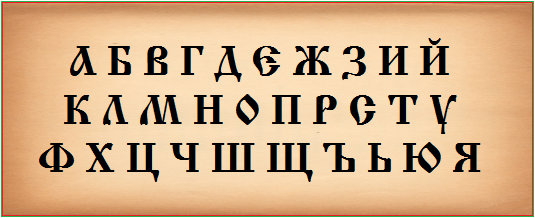The official language in Bulgaria is the Bulgarian. Bulgarians write in the Cyrillic script – an heir to the ancient Slav-Bulgarian characters. The inventors of the Slavonic alphabet, whose letters comply with the peculiarities of the proto-Bulgarian language were the brothers Saint Cyril and Methodius, born in the town of Thessaloniki. In 855 AD, they made the first Slav-Bulgarian alphabet called Glagolitic. This was an epochal event of a huge significance for the culture-and-history development of Bulgaria, as the Bulgarian language became equitable to the three officially recognized languages in Europe – the Latin, Greek, and Jewish, in unison to the then existing scholastic dogma of the trilinguism. With the recognition of the Bulgarian language as official European language Bulgaria's role in the development of Europe in the era of the Early Middle Ages was strengthened. The disciples of the first-teachers Cyril and Methodius – namely Sava, Gorazd, Kliment, Naum, Anghelarii, as well as their followers performed a huge enlightening activity for disseminating the Slavonic letters and culture. Kliment set up in Ochrida a renowned education school, "developed" the "Cyrillic" as better suited for the Slav-Bulgarian language as compared to the Glagolitic alphabet. The newly discovered alphabet was named "Cyrillic" after the name of the first teacher Constantine Cyril, the Philosopher and became the foundation of the modern Bulgarian letters and literacy, as well as of the Slavonic culture in general. 98 % of the Bulgarian population can read and write. Bulgarians have been recognized as a nation of polyglots. At school it is compulsory to learn at least one foreign language: English, French, German, Russian, and Spanish. |


